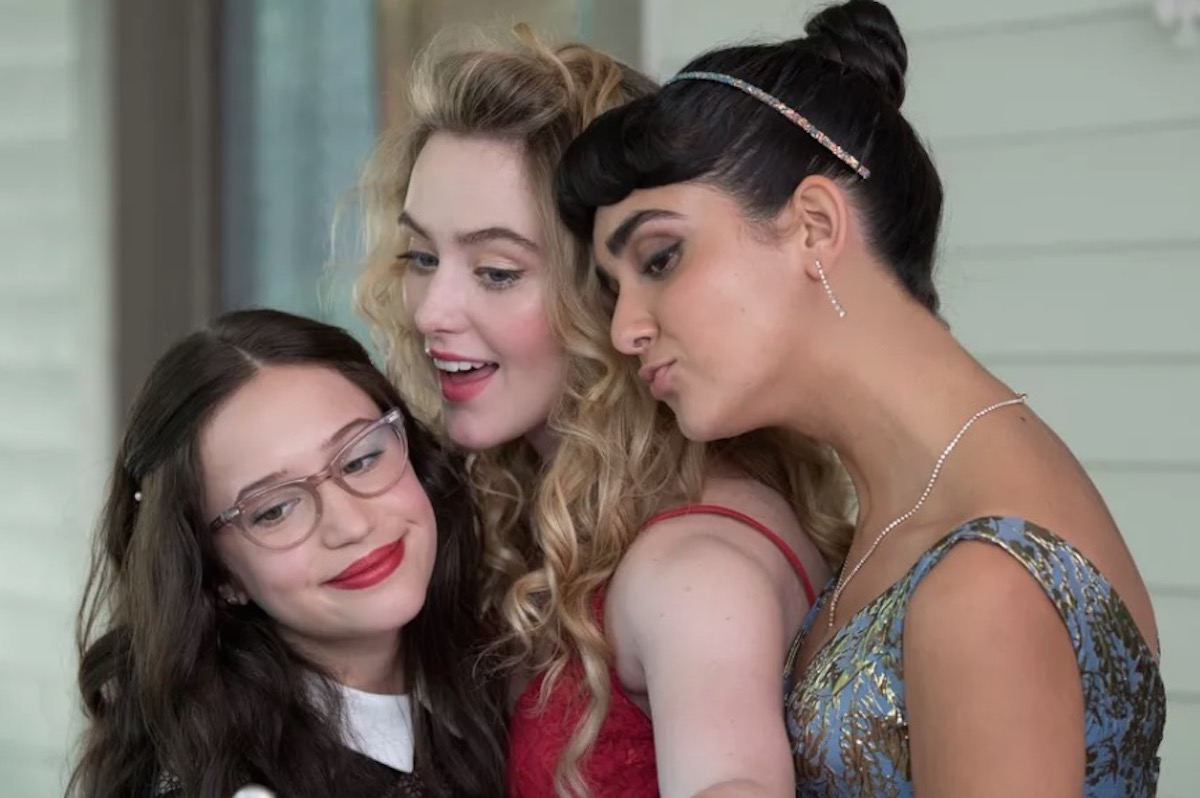I’ve been thinking about Blockers a lot since I first saw it. I continue to be impressed by how it subverted it the premise it was based on. It takes the tired notion that a girl’s virginity must be preserved, and mourned if lost, and constantly questions and critiques that idea. Yet none of that came through in the marketing, leading a lot of potential fans turned off from the film. (Hopefully, the positive reviews and word of mouth have brought some of those people back.)
I’ve been wondering, though, how much of that subversion was in the original script itself, and how much was the work of the director, Kay Cannon. The script was written by two men, and it’s not that men can’t write a feminist script (of course they can), but as I wrote in my review, this movie distinctly felt like it was made by a woman. It’s the difference between a feminist message and a feminist lens–you can feel Cannon’s keen, nonjudgmental eye guiding us through the entire film.
In a new interview with Rolling Stone, Cannon has answered my question. She’d made her mark as a writer and showrunner with Pitch Perfect, Girlboss, New Girls, and 30 Rock, but she’d never directed until she was brought in to punch-up jokes for the surprisingly feminist Neighbors 2 and caught the attention of Seth Rogen and his production team. They reportedly delivered the Blockers script, written by Brian and Jim Kehoe, with “a straight offer to direct.”
She said she was surprised at the offer. “Then I read the script and thought, ‘It’s super funny, it feels like this was written by men – and I know exactly what my spin on it would be.’ I knew what to do with this. And I knew what I would change.”
For starters, Cannon says, she noted that the script leaned far more heavily on the parents’ storyline than the teens’ side of things – and that if you made it more of a 50/50 balance, the movie suddenly opened up in a whole new way. “I tried to remember what high school was like for girls and everything they – we – had to deal with,” she adds. “And I wanted to give each of the three daughters a specificity, the idea that they were each going through their own experience. I didn’t want them to be interchangeable.” That meant not only fleshing out subplots involving leaving for whether to go to an out-of-state college and breaking away from an overly sensitive father but also, in the case of Gideon Adlon’s character, adding in the idea that she’s struggling with her sexuality and coming out.
None of this surprises me. Maybe the Kehoes’ script was fine, maybe it was funny, but it sounds like it was the script we were expecting to see on the screen: a story about parents trying to stop their daughters from having sex. What we actually got, with Cannon’s voice involved, was a story about three girls growing up and claiming their sexual agency, and all the reasons, both personal and societal, why their parents feel it necessary to hold onto the past. All in a movie that’s LGBTQ and racially inclusive. (I can’t even imagine what Blockers would have been without Sam’s coming out storyline. A very different movie, to be sure.)
This is why it’s so important to have not just wider onscreen diversity, but representation behind the scenes as well. I’m glad movies about women are getting made. But without including a woman’s voice (or hey, why not many women’s voices) in the process, it’s unlikely that those stories will feel authentic. It’s not just women praising it either. Critics and audiences, regardless of gender, have largely connected to the heart at the core of the comedy. Without Cannon, it doesn’t sound like that heart exists.
(via Rolling Stone, image: Quantrell D. Colbert/Universal Pictures)
Want more stories like this? Become a subscriber and support the site!
—The Mary Sue has a strict comment policy that forbids, but is not limited to, personal insults toward anyone, hate speech, and trolling.—










Published: Apr 9, 2018 9:08 PM UTC